Coaching for Performance
Course Overview

“Coaching is focused, transformational process that support self-discovery, change and action.”
Coaching for performance is increasingly becoming one of the most sought after and important skills for anyone in a work environment. It is a skill that no manager cannot live without. The days of direct commands from managers to their employees are long gone. The importance of inspiring and guiding employees to realize their abilities and discover their power and responsibilities can no longer be ignored. This is why any successful company is now deeply interested in formal and informal coaching carried out continuously in the workplace.
Goal of Course:
In this coaching for performance course, participants will be engaged in extensive role-plays to help them develop their coaching skills. Individual and group activities will also be used to solve exercises and cases and participants will have the opportunity to practice the GROW model devised by Sir John Whitmore. In addition, participants will be equipped with communication and listening skills and how to motivate and encourage those being coached.
Duration:
2 days
Language:
English / Arabic
Training Objectives
- Define and explain the meaning and the differences between Coaching, Training, Mentoring & Counselling
- Understand why, how and when to apply coaching in a workplace settings
- Understand and explain the benefits of coaching and why sometimes coaching fails
- Analyze and recognize your own coaching styles and how to apply this knowledge in your coaching engagements
- Learn the skills, characteristics and qualifications of an effective coach
- Improve communication skills to enhance the effectiveness and the quality of coaching sessions
- Learn and apply a variety of coaching strategies, tools and techniques
- Use the GROW model to coach, question and guide a coachee
- Ask questions to maximize the efficiency of the coaching session, raise awareness and open up new possibilities
- Ask better questions and listen better
Module Outlines
Module 1: Introductions and Definitions
- What is Coaching?
- What coaching is not?
- Coaching, Training, Mentoring & Counselling
- Coaching in the workplace
- Fixed versus Growth Mindset Mood Elevator
- Skills of an effective Coach
- Competencies and the personality iceberg
- Behavioral vs. performance indicators
- Formal and informal coaching and how do they differ
- The best formal systems of coaching and how can you implement them at work
Module 2: Principles, benefits and challenges of coaching
- The principles of coaching that you must adhere to
- Applications of coaching in the workplace
- The benefit of coaching
- Why coaching fails?
- Operational and organizational barriers
- Sequence your coaching?
- What should you talk about first?
- Raise the awareness of a coachee
- Integrating your coaching with HR performance appraisals
- Use coaching in line with your management responsibilities
- Peer coaching?
Module 3: Coaching as a managerial style
- Role of the Manager
- Why managers do not coach?
- What is Leadership?
- Getting Results from Others
- Action Centred Leadership
- What Does the Team Consist of?
- Position of the Manager
Module 4: communication principles for coaching
- Communication — A Two-Way Process
- What Hinders Clear Communication?
- Barriers of communication internally and externally and their effect on the business
- Miscommunications and its direct effect on performance and ROI
- Communication Skills and Active Listening Techniques
- Good habits of effective listeners
- Impact of verbal and non-verbal communication
Module 5: Coaching sessions, strategies and approaches
- Elements of a good coaching session
- Pre-coaching checklist
- Coaching strategies and approaches
- Five steps of coaching
- Coaching models: GROW
- Kinds of questions should you ask in each stage of the GROW model
- The coaching wheel – selected managerial competencies
- Six Coaching Habits
- Exercise: Design your Coaching Habits
- Coaching approaches for different behavioral styles
- Understanding People & Their Motivations
- Arranging the room for coaching
- Running the coaching session
Module 6: How to Ask Effective Questions
- Kinds of questions are ineffective in coaching and why
- Results from asking each type of question and how can you use this knowledge to coach
- Types of questions can you ask and their pros and cons
- Open and closed questions and how can they help when coaching
Module 7: How to Give Feedback
- Assess the coachee and provide valuable guidance
- Give effective feedback
- JOHARI’S WINDOW
- Feedback COIN technique
- Overcome internal barriers while coaching
- Overcome resistance to change or coaching
- Overcoming Defensiveness
- Appraisal Conversation
- Quick Tip & Follow up
Customized Learning
Leap To Success is offering a variety of learning options to meet current realities and can be adapted to suit your business needs. These options include variants of online, blended and on-site course formats.
Face To Face Learning
Enabling you to have a face to face interactive and engaging learning experiences led by renowned industry experts and thought leaders with extensive practical experience who will employ a variety of interactive learning techniques, including short high-impact videos, case studies, assessments, role plays, in addition to on-going support.
Virtual Learning Labs
Interactive online learning held in real-time using Zoom and are led by international subject matter experts who incorporate case studies, breakout rooms, guided practice, simulations and discussions to maximise your learning experience.
General Methodology
Similar to any L2S training program, this program offers an interactive learning experience in which will allow the delegates to reflect on their learning through an informative, indulging, and fun classroom experience. The design of the training session focuses on the following attributes.
Concrete Experience: The delegates will learn by doing
Reflective Observation: Reflecting on the newly experienced skill-set
Abstract Conceptualization: Developing deeper understanding to the learned concepts
Active Experimentation: Providing the delegates with realistic tools that can be tested in the real life
Activities Brief
What leaders Should Ask:
This fascinating learning experience is Based on the book, Leadership Made Simple, by Ed Oakley and Doug Krug the program introduces a proven process called The Framework for Leadership™, consisting of 5 questions, which, when asked in a specific order, enable project managers to engage their team in finding and implementing effective solutions. This structured workshop includes individual self-assessment on Leadership Style, Communication Style and Social Style.
Communication is the Key !
This activity focuses on effective communication. It is for two teams with the ideal number of participants being 3-6 per team. Communication is the Key! is a very straight-forward activity aiming at the below learning objectives:
- communicating within a team
- communicating between teams
- problem-solving
- teamwork
- planning
Sign Up For the Course
